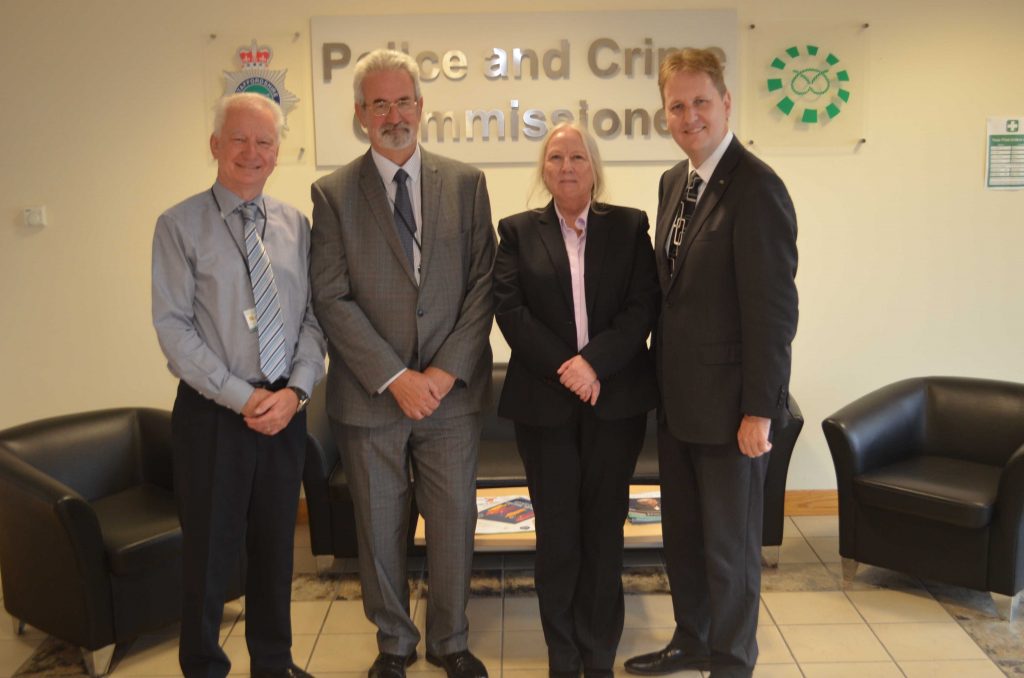Two new members have been welcomed onto the independent panel established by Staffordshire’s Police and Crime Commissioner Matthew Ellis to strengthen public scrutiny of policing.
The Ethics, Transparency and Audit Panel (ETAP) was launched under the ‘New Dawn of Transparency’ agenda by Mr Ellis and aims for policing in Staffordshire to be the most open and transparent in the country.
Ten members of the public sit on the panel which meets regularly to monitor the work of police including how crime is recorded and how complaints from the public are dealt with.
The rigour and scrutiny brought by the ETAP to crime recording was praised in Her Majesty’s Inspectorate of Constabulary’s (HMIC) assessment of policing in Staffordshire ten months ago.
Allan Lorimer, a senior analyst for Her Majesty’s Revenue and Customs from Stafford, and Larraine Wilde, an environmental scientist from Burton who has worked on international projects in the mining and energy sectors and in post-war rehabilitation, met other new panel members at Staffordshire Police HQ for the first time last week.
Mr Ellis said: “It was good to meet and welcome the new panel members who I am sure will strengthen the ETAP’s vital work. Honest and independent scrutiny by the public is crucial as we strive to set the bar higher and create a new dawn of transparency in policing.
“This is about being open and transparent so that public confidence across policing and criminal justice is improved.
“This panel has used its wide-ranging and rigorous powers to scrutinise crime recording, forensics, Taser use, and stop and search to make sure decisions made by the police are correct and in the best interests of the public. We’re looking for more members of the public to step forward and get involved in this vital work.”
Staffordshire people interested becoming an ETAP member – who must be aged 18 or above – should visit www.staffordshire-pcc.gov.uk/eta
Following the ETAP’s success, new local independent panels have been launched so that people can influence policing in their communities and help hold local police commanders to account at the most local level. They are made up of local residents, local councillors and magistrates and meet regularly with their area’s local policing commander.
The panels influence local policing and community safety, scrutinise the work done by police in the area, give feedback to their community and examine the impact of community resolutions and restorative justice where they live.
To find out more visit http://www.staffordshire-pcc.gov.uk/safer-neighbourhood-panels/



